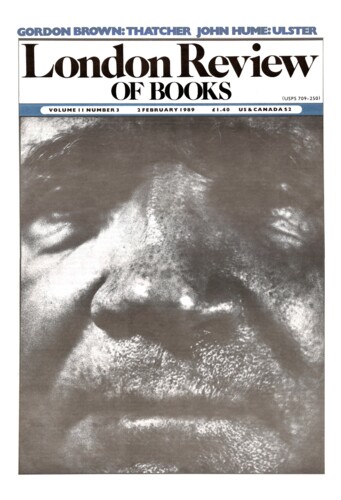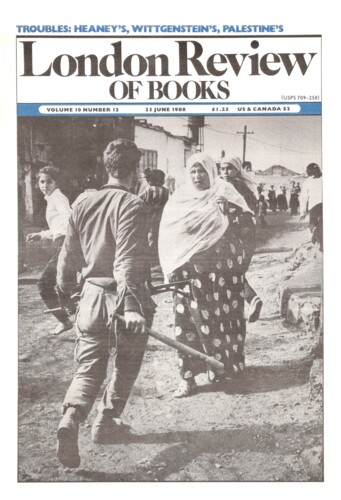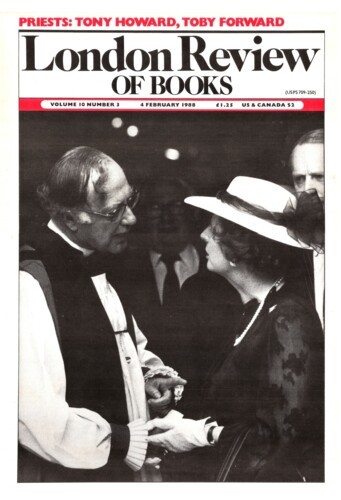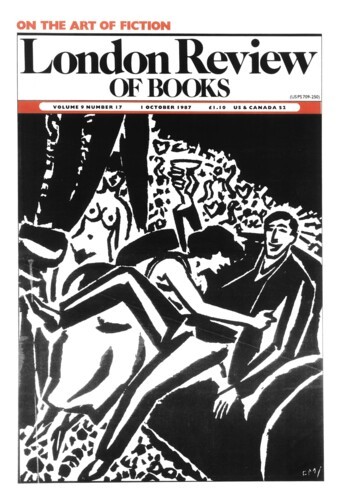Blood Ba’th
David Gilmour, 2 February 1989
Few countries were less promising for aspiring politicians than Syria in the Sixties. To begin with, the chances of merely staying alive during the political struggles were not high. Then, even if you managed to avoid death, there was a high risk of imprisonment or exile. In any case, it was not enough to belong to the victorious political party or even to the triumphant faction of the victorious political party. You had to be a member of a tiny committee of a splinter of a faction of a greatly divided organisation, the Arab Socialist Renaissance Party, known as the Ba’th. Then at least you had a two-to-one chance (against you) between elimination and success. If you chose one straw (Muhammad Umran’s), you would be dead; if you chose a second (Salah Jadid’s), you would still be in prison; and if you chose a third, you would be Asad. A Roman emperor of the third century had more chance of honourable retirement than a Syrian Ba’thist leader in the Sixties.





